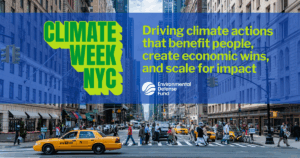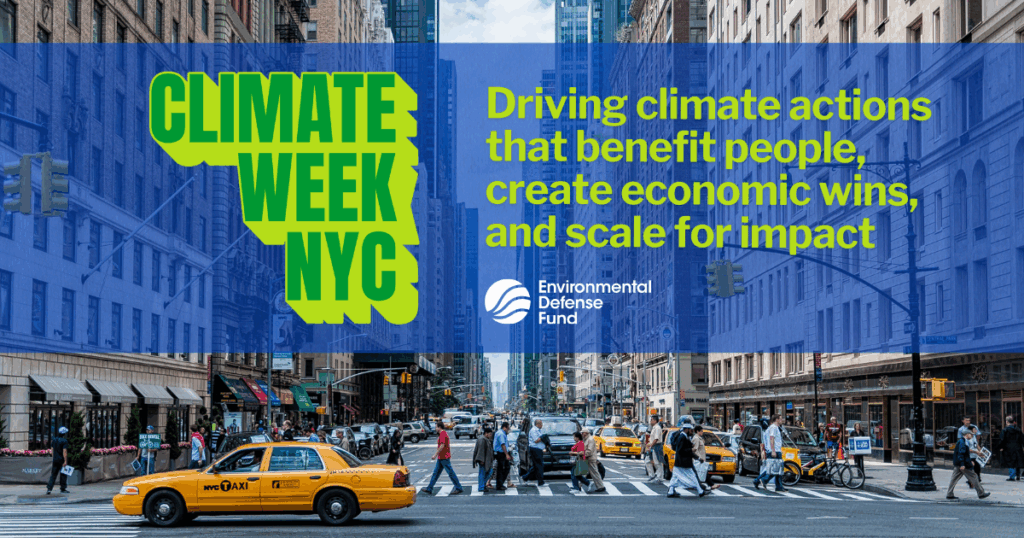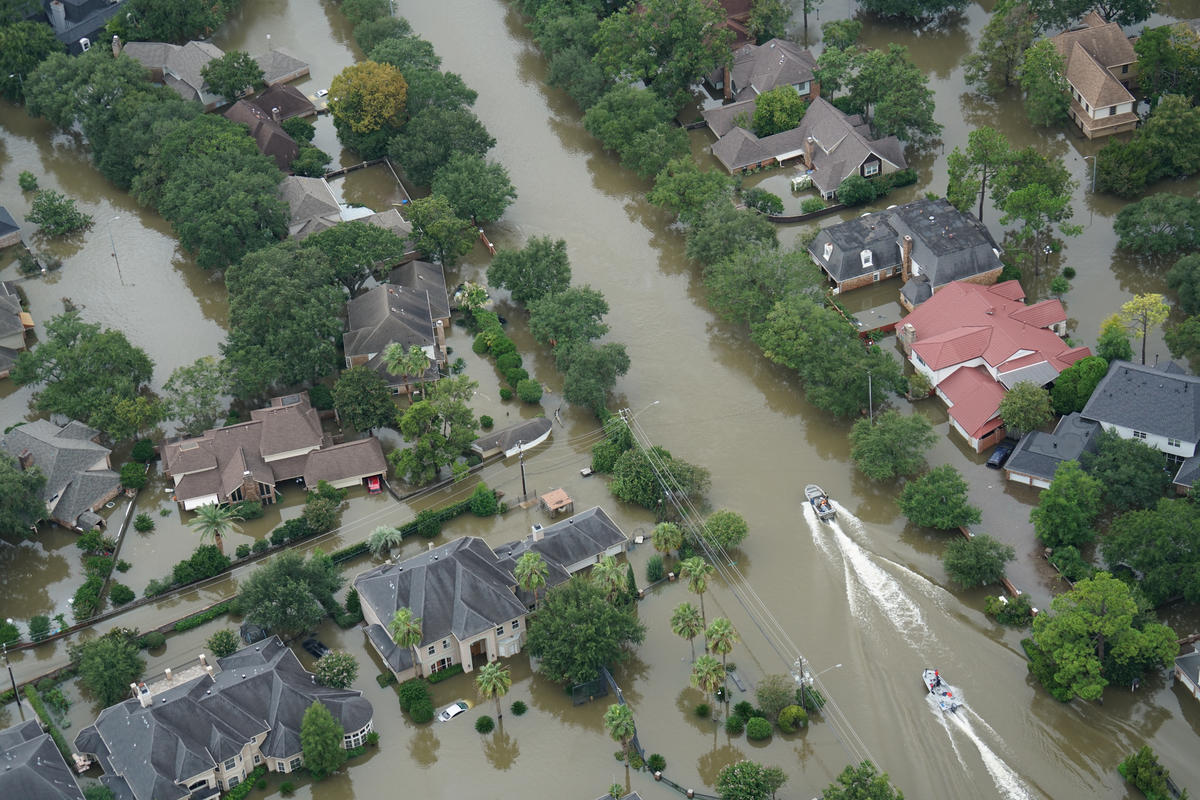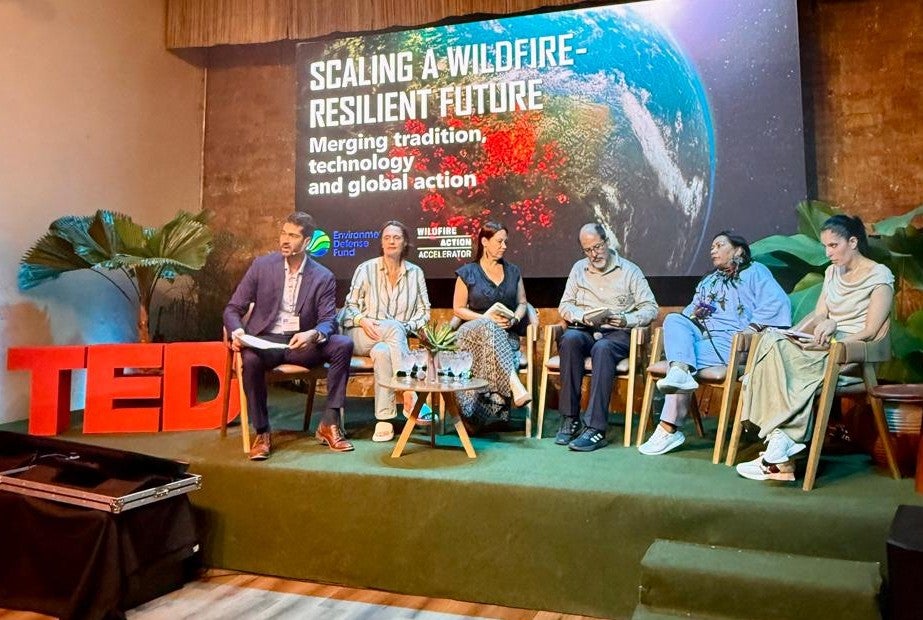
Solutions to Scale at Climate Week NYC: Driving Climate Actions that Benefit People, Create Economic Wins, and Scale for Impact
We’re halfway through the “decisive decade” leading up to 2030, and the urgency of climate action is at our doorstep.
Leaders have several major milestones this September to mark that halfway point, gathering in Addis Ababa, Ethiopia for the second UN Climate Week of 2025 and Africa Climate Summit and later in New York City for the UN General Assembly and Climate Week NYC 2025.
Whether we’re gathering in Addis or Manhattan, however, we face a hard truth: despite a decade of work under the Paris Agreement, our current commitments, and in particular the pace of implementation, are simply not enough. A recent UN report shows that even if every country meets its current goals, we are still on track for a dangerous 2.7°C of warming. This isn’t just a number representing a distant threat; communities are already experiencing intensified wildfires, floods, and extreme weather.
The economic evidence is also mounting, revealing the immediate cost of inaction. Climate-related disasters already saddle the U.S. with an estimated $150 billion bill annually. For a child born in the United States in 2024, a failure to act could mean facing nearly $500,000 in climate-related costs over their lifetime. The costs affect all of us, globally: climate change is an economic imperative that is already costing too much money—and too many lives—to ignore.
Bright spots and solutions point the way forward
But Climate Weeks aren’t just about sounding the alarm—they’re about showcasing the solutions that work. We’re seeing a global wave of progress that proves a clean energy future isn’t just possible, it’s already happening:
- According to the International Renewable Energy Agency (IRENA), the three cheapest electricity sources globally last year were onshore wind, solar panels, and new hydropower.
- Electric car sales topped 17 million globally in 2024, a massive jump from just 500,000 in 2014, according to the International Energy Agency (IEA).
These solutions provide cost savings and immediate health benefits by reducing air pollution. In the U.S., one economic study shows that the benefits of air pollution regulation exceed the costs by 10 to 1. This means for every dollar we spend, we get $10 worth of benefits to our health, our climate, and our society.
These moments, from the conversations in Addis or New York to the UN climate negotiations in Brazil, are our opportunity to turn the tide. They are about more than just setting goals; rather, they are about mobilizing solutions that are proven to work for people, make good economic sense, and can be scaled up to meet the moment.
Solutions that work for people
Imagine healthier communities free from polluted air and water, benefiting from the economic opportunities that arise from new green industries, and the safety and stability that come from energy security and a resilient planet. Science-backed solutions exist that offer near-term progress while simultaneously enhancing quality of life.
For example, cutting methane from agriculture can lead us toward better nutrition, health, and farmer livelihoods, alongside climate benefits. Agriculture is a significant contributor to methane, a pollutant with 80 times the warming power of carbon dioxide over a 20-year period. A substantial portion of this comes from livestock, with a single dairy cow producing up to 500 liters of methane per day. EDF is working with partners to integrate sustainable practices, like new feed and genetics, into national climate plans. This improves animal health, reduces methane output, and protects the livelihoods of farmers and the global food supply. By cutting agricultural emissions, we improve air quality and the health of rural communities, showing that a just transition is possible.
Solutions that make good economic sense
Research shows that maximizing economic prosperity requires that we address climate change. The path forward is to scale the solutions we already have. EDF is working to advance solutions that make good economic sense for the people and companies we need to engage while delivering benefits for our planet.
Oil and gas operations are another major source of methane pollution from leaks and venting–and an economic opportunity. Methane leakages are not only a waste of a valuable resource but also a source of harmful pollutants that harm the health of nearby communities. Slashing methane emissions is one of the fastest ways to slow climate change. At COP28, EDF helped broker an agreement for leading oil companies to reduce pollution by as much as 90%. For these companies, capturing methane translates into direct economic benefits by recovering a valuable product. For communities, it leads to tangible public health benefits. Globally, these efforts can help prevent 225,000 premature deaths and 73 billion hours of lost labor from extreme heat.
Solutions ready to implement and scale
Seizing this moment requires an all-of-society mobilization. Collaborative efforts, bringing together diverse perspectives and resources, are the key to scaling and implementing solutions that genuinely work. Governments must enact supportive policies, businesses must innovate and invest, and communities must shape and champion changes.
For an example of how we can scale solutions regionally and globally, look to wildfire management. Climate change is fueling a vicious feedback loop, with wildfires releasing greenhouse gases that accelerate climate change, leading to more intense and frequent fires. The economic toll is staggering, with an estimated $250-$275 billion in damages from the 2025 Los Angeles wildfires alone. EDF is advancing a proactive, integrated wildfire management strategy that includes leveraging new data systems like the FireSAT, owned and operated by Earth Fire Alliance, for real-time prediction and incorporating the traditional ecological knowledge of Indigenous communities. This approach strengthens community resilience and reduces the devastation that wildfires wreak on local economies. Shifting from reactive emergency response to long-term prevention not only saves lives but also makes sound economic sense.
We have just over two months until the world gathers in Belém, Brazil, for the United Nations climate talks at COP30. We need to arrive with a unified, actionable plan to scale up these solutions and accelerate progress. The task before us is to overcome entrenchment in outdated systems and focus our collective energy on scaling up solutions fast. From the collaborative spirit of Climate Week NYC to the crucial negotiations at COP30, and onwards to 2030, the call to action is resounding: it’s time to act.
Check out EDF’s upcoming events and activities at Climate Week NYC.













